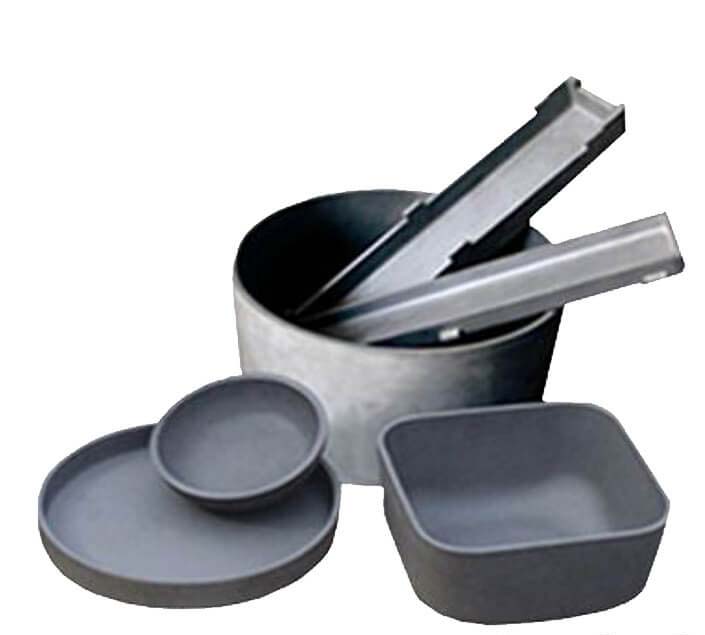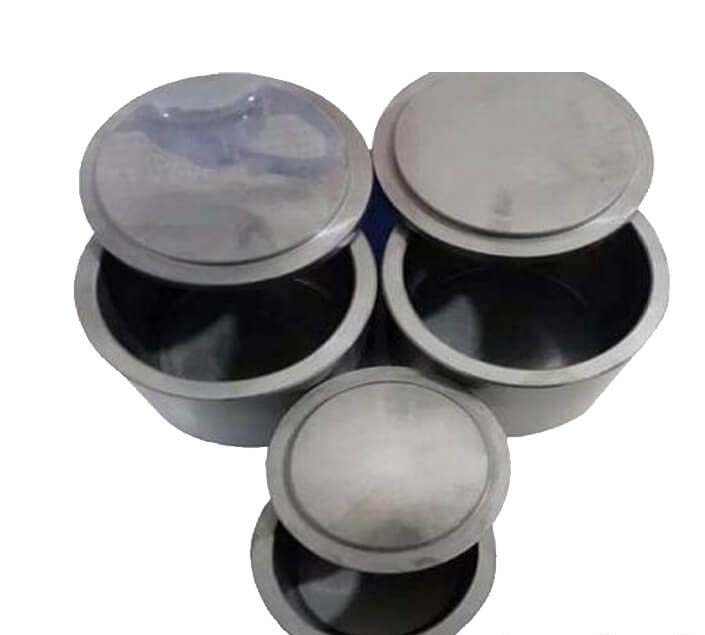Introduction Silicon Carbide Saggers
Silicon carbide Sagger(Silicon carbide Saggar) is a kind of bowl or box with different sizes and shapes. It is made of refractory mud and baked under a high temperature, usually used as one of the most important kiln furnitures for porcelain loading and burning. In the process of firing, the porcelains are easy to crack or break if they are fired directly on the fire, there will be a large amount of defectives. But with the use of silicon carbide saggers, after all the porcelain blanks being loaded into saggers first and then fired, it can not only avoid the damage or pollution to the blanks and the glazes caused by some elements like gas or other substances, but also can ensure the firing quality. With the features of thermal conductivity and thermal stability, using refractory sagger can help to increase the amount of loading and also avoid the bonding between the ceramics.
The shapes and sizes of silicon carbide saggers(silicon carbide saggars) are based on the loaded objects. As the tool of porcelain loading and firing, it both works weather one blank in one sagger or many blanks in one sagger, which effectively make the use of kiln space to increase the output and reduce the power consumption at the meantime. Sometimes, we call silicon carbide saggers as silicon carbide saggars, SIC saggers and SIC saggars too.
Characteristics Silicon Carbide Saggers
Advantages of silicon carbide saggers(ceramic saggers):
- The yield can easily be increased when ceramics are loaded with saggers.
- Porcelains quality will be ensured with the characters of thermal conductivity and thermal stability.
- No bonding nor pollution to the porcelains.
- Silicon carbide saggers can be shaped according to the firing objects, more suitable for loading and firing.
- It can be used to protect the glazes from harmful gas or substances.
Technical Data Sheet of Silicon Carbide Saggers
| Item | Unit | Data |
| Max Working temperature | ℃ | 1380 |
| Density | g/cm³ | ≥3.02 |
| Porosity | % | <0.1% |
| Bending Strength | Mpa | 250(20℃) |
| Mpa | 280(1200℃) | |
| Modulus of elasticity | Gpa | 330(20℃) |
| Gpa | 300(1200℃) | |
| Thermal conductivity | W/m.k | 45(1200℃) |
| Coefficient of thermal expansion | K-1×10-6 | 4.5 |
| Rigidity | 13 | |
| Acid alkaline-proof | Excellent |
Related Products:
This post is also available in: Arabic French German Indonesian Italian Japanese Korean Portuguese (Portugal) Russian Spanish














